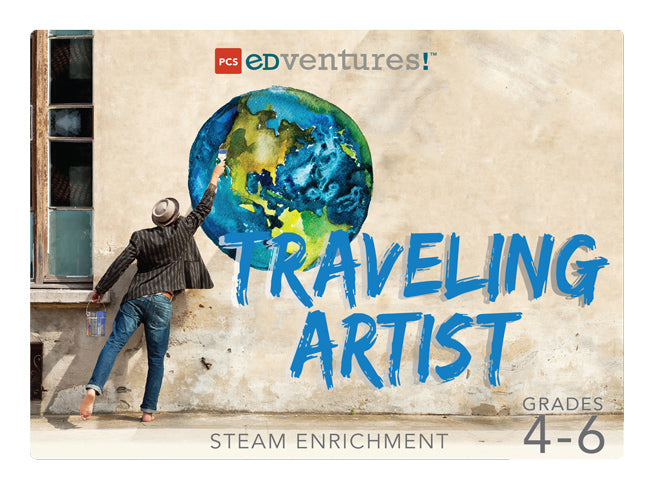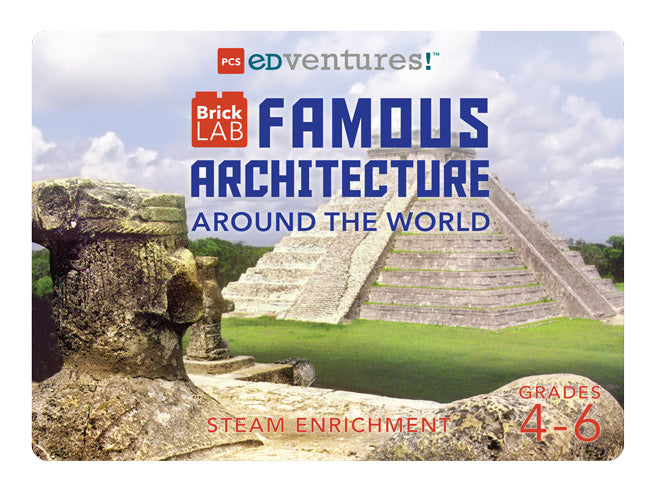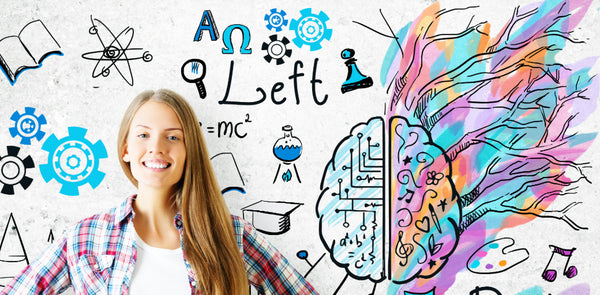
Priming Your Students' Power Skills
Soft skills are getting the upgrade they deserve! Long overshadowed by professional experience and technical expertise, employers are placing greater value on active listening, emotional awareness and strong leadership qualities. Now referred to as power skills, such traits are a superpower for anyone seeking to stand out from the crowd and succeed in their chosen fields.
Why are power skills more significant than ever before? As automation, remote work and artificial intelligence (AI) become more prevalent, technology-driven jobs require employees with power skills who can add the human touch. STEAM equips learners with a range of power skills that complement their technical know-how, effectively preparing them to take on life’s challenges.
Embrace STEAM to prepare your learners for a bright future! Read on to uncover how STEAM creates a learning environment that fosters the development of power skills.
A STEAM-Powered Approach to Career-Readiness:
Active Listening and Communicating:
Collaboration is key in both STEAM and the professional world. For a team to be successful, members must share ideas and provide constructive feedback to one another. STEAM education gives learners opportunities to do just that as they practice being active listeners and communicators in a supportive setting.
Active listeners pay close attention to what others say and ask clarifying questions to ensure understanding. Learning to accept others' ideas can be difficult for many at first. While working through a STEAM challenge, however, learners with different backgrounds and interests must come together to solve a problem. They become more adept at receiving others' ideas as they engage in team-driven STEAM activities. In time, learners build on each other's ideas and discover new perspectives, leading to more innovative solutions.
Additionally, effective communicators articulate their thoughts clearly and persuasively. This helps teammates avoid misunderstandings. There are several ways educators can guide learners to effectively express their ideas. Discussions, sketches, written explanations and even non-verbal communication all have their place in STEAM. These methods become tools learners naturally use in combination when immersed in PCS Edventures’ many compelling activities.
STEAM challenges fuel learners' passion. As their interest grows, effective communication becomes even more essential, regardless of the way they express their ideas.
Visit 7 Ways STEM Supports Neurodiversity for strategies and featured programs that encourage learners to collaborate with group members.
Conflict Management:
Problem-solving and critical thinking skills are essential for successful conflict management. STEAM activities provide ample opportunities for practicing both. Through them, learners can better analyze situations, identify the root causes of conflicts and come up with effective solutions.
Collaboration plays a large role in STEAM and gives learners plenty of opportunities to work through disagreements. But it doesn’t stop there. With PCS Edventures’ quality STEAM challenges and scripted question prompts, educators can inspire learners to think differently and approach problems in innovative ways. These authentic experiences prepare them to grapple with conflicts that are likely to occur in the professional world.
STEAM education also invites learners to discover diverse cultures and traditions. What does this have to do with conflict management? Well, learning about others leads to developing empathy. This involves understanding and appreciating diverse perspectives, which can improve interpersonal relationships, foster a more inclusive workplace and result in fewer conflicts or misunderstandings.
Be sure to explore these popular programs that encourage learners to think beyond their learning environment. We’re sure you’ll agree they’re a great way to embrace diversity and celebrate our differences!
Interested in learning more about how STEAM supports conflict management? In Enhance Executive Functioning with STEAM, we discuss how participating in STEAM activities develops learners' abilities to better control their impulses and emotions. It’s certainly worth a look!
Adaptability and Creativity:
STEAM prepares learners for the rapidly-changing demands of the modern workforce, where adaptability and flexibility are seemingly a requirement.
First, the design challenges found throughout our programming emphasize experimentation, exploration and discovery, which encourage learners to take risks and try new things. They soon discover that Failure is Advantageous, as it develops resilience and leads to new learning. This approach helps learners develop a growth mindset, allowing them to embrace challenges, learn from their mistakes and adapt to achieve their goals.
Creative thinking is also essential in STEAM. It allows learners to think outside the box and find innovative solutions. In today's fast-paced and ever-changing world, creativity is a valuable skill that prepares learners to be adaptable and flexible in their future careers.
Leadership:
By integrating all the power skills we've explored, learners are well on their way to becoming excellent leaders! Let’s see how each element creates a rich and engaging environment for leadership development:
- Active Listening: STEAM projects require collaboration among team members with different skill sets. Leaders learn to listen to others' ideas and help the group develop a shared vision.
- Communication: STEAM projects require learners to communicate their team’s ideas, progress and results. Leaders must feel confident presenting in front of others.
- Conflict Management: STEAM projects often require learners to solve complex problems using critical thinking and analytical skills. Leaders must be able to identify problems, develop creative solutions and make tough decisions.
- Adaptability: STEAM projects often require careful planning and project management. While leaders must be able to set goals, develop a plan and manage resources to achieve those goals, they must also be flexible in adapting those plans as they inevitably change.
- Creativity: STEAM projects require innovative thinking. Leaders need to consider new approaches to overcome limitations and reach new heights.
As learners work through engineering design challenges with their peers, they can develop the skills and qualities needed to become effective leaders in their future careers and personal lives.
Wait, there’s more! Providing opportunities for learners to work autonomously also gives them the confidence to lead their own projects. Explore this and other benefits of fostering self-directed learning in Revamp Classroom Management with STEM.
Harness the Power of Power Skills!
Teaching core subjects and technical skills is no longer the only way to prepare learners for their futures. A strong set of power skills is essential for learners' success, and the earlier they develop those skills the better! STEAM offers a simple and effective way to prepare for the rapidly changing demands of the modern workplace.
Ready to support your learners with the power skills they need to succeed? These programs are incredible resources that will help build a solid foundation for their future careers.
Discover Podcasting:
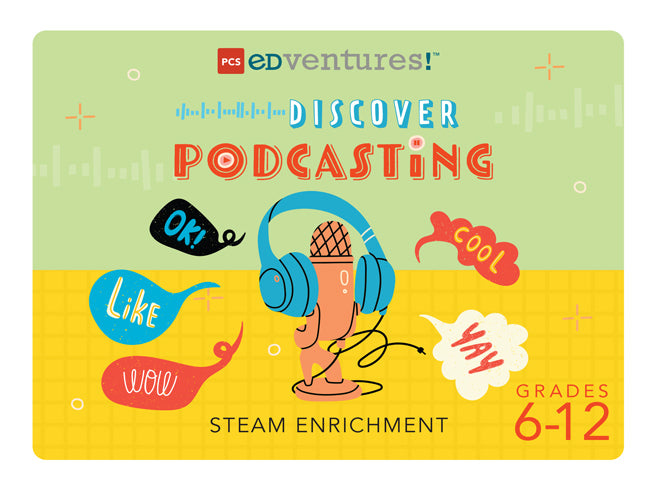
Discover Podcasting empowers learners to develop transferable power skills through the lens of exciting content creation. Go behind the scenes to find out what it takes to run an original podcast!
Drone Designers:
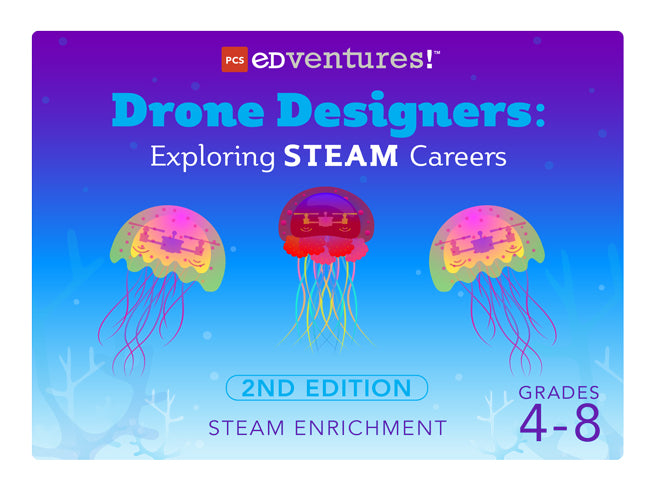
Invite learners to choreograph a drone performance! With Drone Designers, they’ll forge essential skills in critical thinking, creativity, innovation and adaptability through this technology-based, hands-on topic.
Discover Drones:
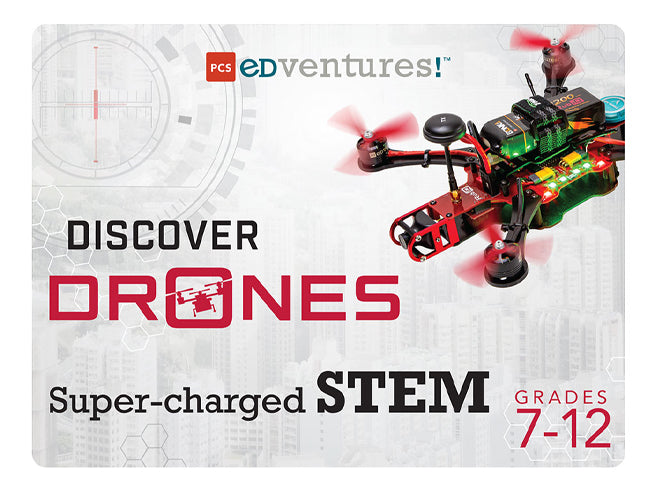
Students experience drone assembly, configuring, piloting and more. Discover Drones facilitates the development of problem-solving skills, creativity, communication skills, and so much more!

Author: Jessica Ventre
An experienced elementary edu cator and science instructional coach, Jessica’s passion for STEM instruction and student-led learning is always at the forefront of her lessons and professional development workshops.
References:
Birt, J. (2023, March 10). Hard skills vs. soft skills: What’s the difference? Indeed. https://www.indeed.com/career-advice/resumes-cover-letters/hard-skills-vs-soft-skills
Michail, J. (2022, December 30). Elevate your soft leadership skills: The real power skills. Forbes. https://www.forbes.com/sites/forbescoachescouncil/2022/12/29/elevate-your-soft-leadership-skills-the-real-power-skills/?sh=5a29e3ca28e1

